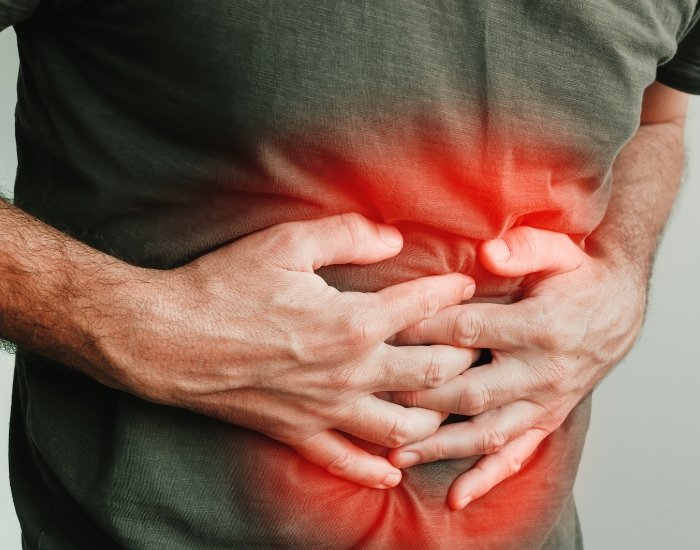Stomach inflammation gastritis is a common yet often misunderstood digestive condition that affects millions of Americans each year. Whether it’s a dull ache after eating or a sharp burning sensation in the upper abdomen, gastritis inflammation can disrupt daily life and signal underlying issues that deserve medical attention. This blog dives deep into the symptoms, causes, and treatments associated with inflammation of the stomach, offering a clear guide for patients seeking relief.
What Is Stomach Inflammation (Gastritis)?
At its core, stomach inflammation or gastritis refers to the irritation, swelling, or erosion of the stomach lining. This can occur suddenly (acute gastritis) or develop gradually over time (chronic gastritis). When left untreated, chronic stomach inflammation can lead to ulcers, bleeding, and an increased risk of stomach cancer.
Gastritis isn’t a one-size-fits-all diagnosis—its presentation can vary widely depending on the cause and severity of the inflammation. For some, it’s mild and manageable; for others, it becomes a recurring or persistent problem that requires medical intervention.
Signs and Symptoms of Gastritis Inflammation
The signs of gastritis inflammation are often easy to dismiss—until they become too uncomfortable to ignore. Common symptoms include:
- Burning and pain in the stomach, especially between meals or at night
- Bloating or a feeling of fullness after eating only a small amount Nausea or vomiting
- Loss of appetite Black or tarry stools (a sign of stomach bleeding in severe cases)
If you’re experiencing persistent burning and pain in the stomach, it’s important not to chalk it up to “just indigestion.” It could be a sign of ongoing inflammation of the stomach that needs attention.
Common Causes of Gastric Inflammation
The causes of gastric inflammation are diverse, ranging from lifestyle habits to bacterial infections. Some of the most common triggers include:
- Helicobacter pylori infection This spiral-shaped bacterium is one of the most common causes of chronic stomach inflammation. It damages the stomach lining, making it more susceptible to acid and leading to long-term gastritis.
- Overuse of NSAIDs Frequent use of nonsteroidal anti-inflammatory drugs like ibuprofen or aspirin can weaken the stomach lining and contribute to stomach inflammation gastritis.
- Alcohol Consumption Excessive alcohol irritates and erodes the stomach lining, contributing to both acute and chronic stomach inflammation.
- Stress and Autoimmune Disorders Severe physical stress (like surgery or injury) or autoimmune conditions that attack the stomach lining can also lead to inflammation of the stomach.
Understanding the causes of gastric inflammation is key to finding the right treatment and preventing recurrence.
Acute vs. Chronic Stomach Inflammation
Stomach inflammation, or gastritis, generally falls into two categories—acute and chronic. Acute gastritis has a sudden onset and is often triggered by factors such as food poisoning, excessive alcohol intake, or the overuse of NSAIDs. The symptoms are usually sharp, intense, and short-lived. In contrast, chronic gastritis develops gradually over time, commonly due to Helicobacter pylori infection or autoimmune conditions that weaken the stomach lining. Both types can cause persistent burning and pain in the stomach, making everyday life uncomfortable. To identify the exact type and severity, a healthcare provider may recommend diagnostic tests such as an endoscopy or a urea breath test.
Treatment Options for Stomach Inflammation Gastritis
The treatment of gastritis depends largely on its root cause but usually combines medication with lifestyle changes. If the inflammation is caused by H. pylori, antibiotics are prescribed to eliminate the bacteria. To reduce stomach acid and promote healing, doctors often recommend proton pump inhibitors (PPIs) or H2 blockers. Avoiding irritants such as alcohol, NSAIDs, and spicy foods plays a key role in preventing further damage to the stomach lining. Stress management techniques—like yoga, therapy, or meditation—are also helpful in easing symptoms. Together, these approaches not only provide relief but also support long-term healing, reducing the likelihood of recurrent gastritis episodes.
When to See a Gastroenterologist
If you have recurring burning and pain in the stomach, unexplained nausea, or a family history of gastrointestinal conditions, it’s time to consult a specialist. Persistent inflammation of the stomach should not be ignored, especially when it interferes with your quality of life or nutrition. In Houston and surrounding areas, gastroenterology centers like Curative GI offer targeted care for stomach inflammation gastritis. With diagnostic tools and personalized treatment plans, they help patients regain comfort and control over their digestive health.
Final Thoughts
Don’t Ignore Stomach Discomfort Occasional discomfort might not be serious—but ongoing chronic stomach inflammation can have long-term consequences if not addressed. Recognizing the signs, understanding the causes of gastric inflammation, and seeking timely care are the first steps toward lasting relief. Your stomach deserves the same attention as any other organ. If you’re struggling with gastritis inflammation, take the next step—get evaluated, get answers, and get better.
